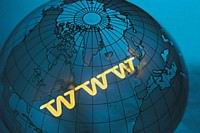
Super Nintendo
..............................................................................................................
The Super Nintendo Entertainment System, also known as Super Nintendo, Super NES or SNES, is a 16-bit video game console released by Nintendo in North America, Brazil, Europe, and Australia. In Japan and South-East Asia it is known as the Super Famicom (Super Family Computer). In South Korea, it is known as the Super Comboy and was distributed by Hyundai Electronics.
The Super Nintendo Entertainment System was Nintendo's second home console, following the Nintendo Entertainment System (often abbreviated to NES, released as the Famicom in Japan). Whereas the earlier system had struggled in the PAL region and large parts of Asia, the SNES proved to be a global success, albeit one that could not match its predecessor's popularity in Southeast Asia and North America—due in part to increased competition from Sega's Mega Drive console (released in North America as the Genesis). Despite its relatively late start, the Super Nintendo Entertainment System became the best selling console of the 16-bit era.
Emulation and controversies
Like the NES before it, the SNES has retained interest among its fans even following its decline in the marketplace. It has continued to thrive on the second-hand market and through console emulation. Many gamers discovered the SNES after its decline. The SNES has taken much the same revival path as the NES.
Emulation projects began in 1996 with projects such as "VSMC" and "Super Pasofami," which, despite some important initial gains, did not last long past 1998. During that time, two competing emulation projects--Snes96 and Snes97--merged forming a new initiative entitled Snes9x. In early 1998, SNES enthusiasts began programming a console emulator named ZSNES. From then on, these two emulators have continued to offer the most complete emulation of the system and its various add-on chips like the Super FX Chip, although development continues on other emulators as well.
Nintendo took the same stance against the distribution of SNES ROM image files and emulation as it did with the NES, insisting that they represented flagrant software piracy. Proponents of SNES emulation cite as arguments for their continued distribution: the discontinued production of the SNES, the right of the owner of the respective game to make a personal backup, the frailty of SNES cartridges and the lack of certain foreign imports. Starting in the 128-bit era, both Nintendo and emulation proponents began to have a less active stance on this issue.
Despite Nintendo's attempts to stop the proliferation of such projects, ROM files continue to be available on the Internet. Since the console's discontinuation, second-hand market decline, and rapid growth of the Internet, finding the files has become less of a challenge than it had been with the NES. Most general ROM sites offer files for the SNES.
The SNES was one of the first systems to attract the attention of amateur fan translators: Final Fantasy V was the first major work of fan translation, and was completed in 1997.
Many sites that offer SNES ROMs for download claim that it is legal to download and play them for up to 24 hours. This is not true and is still copyright infringement. The 24 hour "rule" is a long practiced device to gain trust and generate traffic on ROM distributing sites.
Along the same lines, the newest claim relates to the Digital Millennium Copyright Act [DMCA]. It is claimed that the law enables ROMs and emulation as long as the original method of use, or a current method, is unavailable. Example: if a game for the SNES isn't available on a current generation console or PC CD-ROM playable by modern PCs, it may be emulated. Noted here as a claim, the veracity is unknown.
It is argued that these issues are the reason that prompted Nintendo to plan the Virtual Console service for the Wii console in an attempt to combat console emulation and piracy.
Also, emulation of the SNES is now available on handheld units, such as Sony's PlayStation Portable (PSP), the Nintendo DS, and through the GP2X by GamePark Holdings
Some well known Super Nintendo emulators today are:
- SNES9x v1.39
- Snes9x
- ZSNES v1.337
Top Roms
- Aero Fighters
- Aero the Acro-Bat
- Aero the Acro-Bat 2
- Aerobiz Koei Koei
- Aerobiz Supersonic Koei Koei
- Aladdin
How to Play
Please check our Getting started page for more information.
External links
Top Roms
powered by FT NetOnline

ã Copyright 2006-2007 FT NetOnline.



